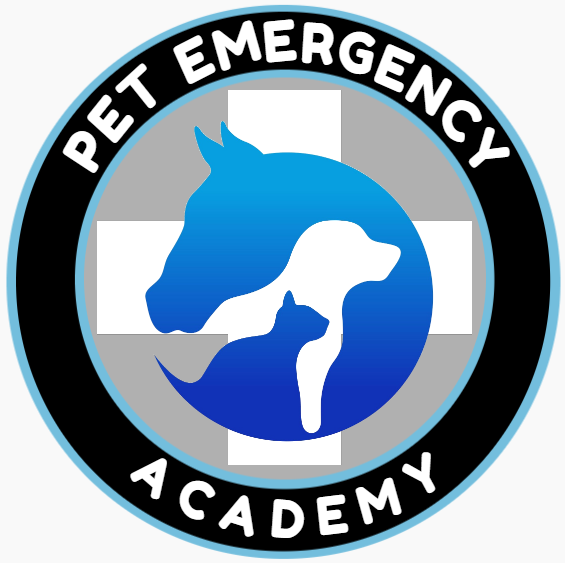Continuing Education
Let’s first clarify what a CEU or continuing education unit is. A CEU is a measure used in continuing education programs, particularly those required in a licensed profession, for the professional to maintain their license.
IMPORTANT: The term CEU is in the public domain. Any organization may award a traditional CEU without requiring any accreditation or recognition by any other organization. With a traditional CEU any employer or other organization must decide on an individual basis whether to honor the CEU from training providers. This means that we are allowed to award CE credits in all of our courses and it is up to the receiving party ie. Employer, licensing board, etc. to accept those credits for the participants. Since we qualify all of you as certified instructors with a formal training process, as well as certifying you with FEMA, our company has a very high level of credibility throughout the animal and veterinary community. To date, we have not had any issues whatsoever with any other organization accepting our CE credits HOWEVER acceptance of our CE credits is not guaranteed by our company. We make this very clear on the certificates that you hand out to each participant in your classes. If anyone asks you if our classes award CE credits you say “yes, they absolutely do”. Now some specific professions such as Veterinarians, Veterinary Technicians needing RACE approved CEU and Professional Dog Trainers certified by the CCPDT have very unique requirements that fall under their own credentialing guidelines. The CE credits we award to these animal and veterinary professionals have very strict limitations. Here are the facts about our certification and CE credits as they pertain to licensed veterinarians, veterinary technicians, and CCPDT Dog Trainers.
We are an approved continuing education provider with 8 prestigious organizations to award continuing education credits in our classes. The details of each organization is below:
- CCPDT stands for the Certification Council for Professional Dog Trainers. This organization has approved our classes for 3.5 continuing education credits. If there is anyone that attends your class from this organization, they are required to write their CCPDT # on the roster next to their name.
- NADOI is the National Association of Dog Obedience Instructors. This organization approves our classes for 3 continuing education credits. Participants notify our office if they wish to receive CEU from our class.
- IAABC is the International Association of Animal Behavior Consultants. This organization awards 3 continuing education credits to their members. Participants must notify us that they are seeking credits from our class as we have a separate form we must fill out.
- PSI is Pet Sitters International. This organization awards 3 continuing education credits in our classes and there are no additional requirements as they accept our certificate as is.
- PACCC- Professional Animal Care Certification Council is a 501(c)(6) non-profit created by a team of industry experts to recognize high quality providers and help them meet the challenge of educating pet parents on the value of a pet care provider’s investment in education and training. They approved our program for 3 continuing education credits.
- IACP- International Association of Canine Professionals is dedicated to the education, development and support of dog training professional world-wide. They have approved our classes for 3 continuing education credits.
- PATH- Professional Association of Therapeutic Horsemanship International (PATH Intl.), a federally-registered 501(c3) nonprofit, was formed in 1969 as the North American Riding for the Handicapped Association to promote equine-assisted activities and therapies (EAAT) for individuals with special needs. Our EquiAid program qualifies as continuing education for PATH instructors.
The most prestigious of all is our approval with the American Association of Veterinary State Boards, also known as AAVSB. We are also a RACE approved provider of CE for veterinary professionals by the American Association of Veterinary State Boards and our classes qualify for 3-4 CEU for veterinary professionals. What this means is that our company is approved to award RACE (registry of approved continuing education) CE credits to veterinary professionals that take one of our classes. However, the instructor must also be qualified to a teach a class that offers RACE credits. Unfortunately, we are not approved to award RACE CE to veterinarians, only veterinary technicians, and other support staff. It is just how the AAVSB has approved us based on their own criteria of how they rate the level of instruction.
ONLY credentialed veterinary technicians and licensed veterinarians that have been approved by AAVSB can teach classes for RACE CE credit. This means that if you are not qualified, your classes will not be able to award RACE-approved CE credits. However, participants will receive traditional CE credits. It is up to their state licensing board to accept the traditional credits. For example, North Carolina accepts our traditional CE credits. If you are not a vet tech we do strongly suggest you contact your state veterinary board and ask if they will honor our traditional CE. If you can get approval from your state then it trumps RACE approval and it is not needed anyway. We are happy to provide any documentation and curriculum outlines to your state if they ask for it to help in the approval process. It is something we want to do to help your classes get recognized by anyone you feel would be important.
All veterinary technicians and veterinarians that teach for us must provide a thorough, detailed essay of your experience as a veterinary professional and how that experience makes you more knowledgeable than the average veterinary professional that would attend one of your classes. You will have to write a separate essay for each topic/program you will be teaching with us, ie. pet CPR, equine first aid, etc. This will help us to qualify you to teach our RACE classes. Instructors that are qualified to teach RACE classes will have more opportunities to teach.
